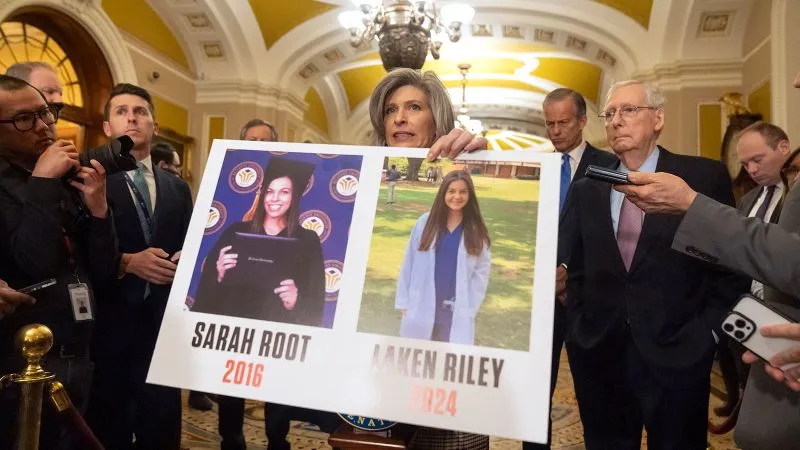
The Laken Riley Act: What It Is and Its Role in Al Green's Protest During Trump's Speech
The Laken Riley Act: What It Is and Its Role in Al Green's Protest During Trump's Speech
March 6, 2025 – The recent controversy surrounding Rep. Al Green's protest during President Trump’s speech was heightened by his invocation of the Laken Riley Act, a legislative proposal that aims to hold elected officials accountable for inciting violence. This act has been gaining attention after Green’s decision to protest during Trump’s speech in the U.S. House of Representatives.
What is the Laken Riley Act?
Named after a young victim of politically motivated violence, the Laken Riley Act seeks to establish a legal framework for holding public figures responsible for their rhetoric, especially when it leads to harm or incites violence. Introduced by Rep. Al Green in 2025, the bill reflects a growing concern among certain lawmakers that incendiary political speech may contribute to the increasing polarization and violence seen in U.S. politics today.
Green’s protest during Trump’s address, in which he called for more accountability from leaders in government, was directly linked to his support for the Laken Riley Act. The legislation has been met with both praise and criticism, with some seeing it as a necessary step to protect democracy and others viewing it as a limitation on free speech.
Al Green’s Protest During Trump’s Speech
During President Trump's speech, Rep. Al Green interrupted the proceedings by holding up a sign and demanding that the president be held accountable for his inflammatory rhetoric. This act of protest was not only a response to Trump’s controversial speech but also a direct statement in support of the Laken Riley Act. Green has been a vocal critic of President Trump’s policies, particularly his divisive language, which some argue has contributed to the growing tensions across the nation.
The protest immediately sparked a partisan debate on the House floor, with many Democrats supporting Green’s actions, while Republicans denounced the disruption. Some critics of Green’s protest argue that such actions further deepen the divisions within U.S. politics, while supporters say it is an essential move to ensure political leaders are held accountable for the language they use.
The Debate Over the Laken Riley Act and Its Impact
The introduction of the Laken Riley Act has intensified discussions about the limits of free speech and the role of politicians in fostering civil discourse. Proponents of the act argue that it is necessary to protect citizens from the consequences of harmful rhetoric, especially when it incites violence or spreads misinformation.
However, opponents argue that the act could infringe upon the First Amendment rights of politicians, potentially leading to a dangerous precedent where speech is stifled in the name of protecting public safety. This ongoing debate is likely to continue as the bill moves through the legislative process, with some viewing it as a necessary check on political power, while others fear it could be used to suppress free expression.
Conclusion: A Divisive Moment in U.S. Politics
Al Green’s protest during Trump’s speech, coupled with the introduction of the Laken Riley Act, marks a pivotal moment in U.S. politics. While it has sparked significant division, it has also brought attention to the power of political rhetoric and the need for greater accountability among elected officials. As the debate over the Laken Riley Act continues, it will be interesting to see how it shapes future political discourse and the boundaries of free speech in the United States.